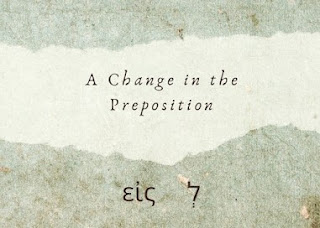The One Who Knows (Selfies)


How many selfies do you have on your
phone? If you have an Apple device you can go into your photos, click on Albums,
and scroll down to see exactly how many selfies you have. Out of the 8,500
photos on my iPhone, I have nearly 1,400 selfies. I love taking selfies of my
husband and myself in all the places that we visit. My husband does not really
like them so much. In fact, I am limited to a ‘one-selfie-a-day’ with him. With
the invention of the smart phone, taking pictures is just a click away. People
love to take pictures of the places they visit. Who better to take a picture of
you or you and your family or friends or spouse, than YOU!
The selfie, which is slang for,
self-portrait, has been around for a long time. In fact, Leonardo Da Vinci painted
a self-portrait in 1512. The term “selfie” has not been around for that long.
The first recorded use of the term “selfie” is from 2002 and then in 2013 it
was chosen by Oxford English Dictionary as the Word of the Year.[1]
When we take a selfie, the focus is
usually on ourselves. Yes, you can see the things in the background, but they
might be blurry. With my iPhone in the “portrait” mode, I can black out all
things behind me so you would not know where I am or who I am with. You really do
not know the real me. All you see is my smile and maybe you can make out the
scenery behind me. You might think, “she is happy”, or “she is on the beach in
the fog”, or “she is at a church in Yosemite National Park”. But you really do
not know me. You only know what I show you in my pictures.
There is Someone who knows you and
me, even when we try to hide ourselves by blacking out the background, that is
God. The psalmist, presumably David, writes about the One who knows all, in Psalm
139. David writes this psalm after his great sins of adultery and murder, which
he thought were done in secret, are made known. He writes, “O Lord, you have
searched me and you know me”. The Hebrew word יָדַע
(yada) means “to know” and it is found six times in the Psalm.
This can be frightening, that the
all-knowing God sees the true us. God knows all our sins and failures, all the
things we try to hide from the rest of the world. Sadly, in the church
sometimes we hear about God in a wrathful, vengeful way, as if God will zap us
each time we sin. However, the Psalm ends, “Search me, O God, and know my
heart; test me and know my anxious thoughts. See if there is any offensive way
in me and lead me in the way everlasting.” God, who knows all, is a gracious,
loving God who desires to have a relationship with all. The psalmist writes how
“wonderful” it is that God knows him (vs. 6), from before birth, when he rises
and lies down, his comings and goings, his thoughts. God knows him inside and
out.
In a book titled Tales of
the Hasadim, Martin Buber, an early twentieth-century Jewish philosopher,
offered these words concerning the relationship between God and humankind:
Where I wander – You!
Where I ponder – You!
Only You, You again, always You!
You! You! You!
When I am gladdened – You!
When I am saddened – You!
Only You, You again, always You!
You! You! You!
Sky is You, Earth is You!
You above! You below!
In every trend, at every end,
Only You, You again, always You!
You! You! You![2]
God is here, there, and everywhere.
When we take a selfie and share it
on social media, the perception we share with the world is the happiness we
experience in life. When in reality, there are many areas of life we are not
sharing with others. Our wounds, our scars, our sadness, our anxieties. Instead
of being afraid of what God knows, be thankful God does know and God is there
for us in the midst of the things we hide from others. Find comfort that in our
failures and sadness, because God graciously loves us and leads us in the way
everlasting (vs. 24).
[1]
www.thoughtco.com
[2] Martin
Buber, Tales of the Hasadim: The Early Masters (New York:
Schocken Books, 1947), 212.




Comments
Post a Comment